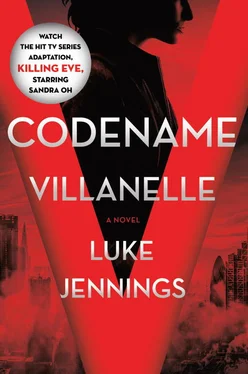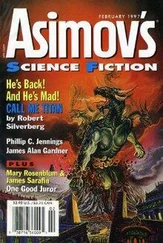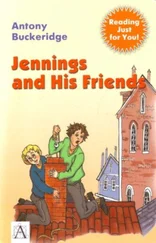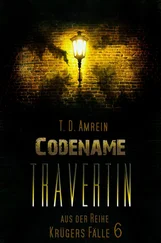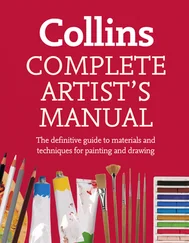“A little,” she says.
The stewardess is back with champagne. Martín accepts, Villanelle asks for mineral water.
“You should think of modelling,” he says. “You have the cheekbones, and the fuck-you stare.”
“Thank you very much.”
“It’s a compliment, believe me. What do you do?”
“Financial stuff. Much less glamorous, I’m afraid. So… was your wife a model?”
“Elvira? Yes, originally she was. A very successful one. But these days I deal with the clients, and she runs the back office.”
The conversation takes its predictable course. Villanelle is guarded on the subject of her alter-ego Manon Lefebvre, and presses Martín for details about Tempest. With two glasses of Veuve Clicquot drunk and a third half-empty, he’s only too happy to talk about himself, while simultaneously plying Villanelle with a stream of increasingly flirtatious compliments.
For a moment she wonders if he’s a plant from MI5, or France’s external intelligence service, the DGSE. But she didn’t book the London flight; instead she took a taxi hailed at random outside the Galeries Lafayette on the Boulevard Haussmann, and paid cash for her ticket when she got to the airport. Basic counter-surveillance measures, including a last-second pull-off into a service station on the A1 autoroute, told her that she wasn’t followed from Paris. And Martín was in the business-class lounge before her, already checked in. Most importantly, her instincts—highly tuned when it’s a question of her own survival—tell her that this man is not playing a role. That he really is the over-groomed seducer that he appears to be. The joke about narcissistic types like Martín is that they always think they’re in control—at work, in conversation, during sex.
Her thoughts drift to that night in Palermo. Say what you like about Leoluca Messina, he didn’t have control issues. In fact he was perfectly happy to let her fuck him while she was holding a cocked and loaded Ruger. In its way, the whole episode was quite romantic.
Konstantin is sitting in front of the cafe counter, facing the door and Gray’s Inn Road. The Evening Standard is open in front of him at the sports page, and he’s sipping a cappuccino. When Villanelle walks in, stamping snow from her boots, he looks up, his gaze vague, and nods her to a seat opposite him. The downbeat welcome robs the moment of its potential drama; no one looks up at the young woman in the thrift-shop coat and knitted beanie. She orders a cup of tea, and the pair begin an inaudible conversation. Were anyone to attempt audio surveillance they would find their efforts frustrated by the low-fi snarl of the sound system and the steamy hiss and cough of the Gaggia coffee machine.
For thirty minutes, as customers come and go, they discuss logistics and weaponry in fast, idiomatic Russian. Konstantin tests Villanelle’s plan to destruction, throwing up objection after objection, but finally concedes its workability. He orders a second cappuccino, and stirs his cup meditatively.
“Palermo worried me,” he tells her. “What you did, driving through the city at midnight on the back of Messina’s motorcycle, that was reckless. Things could have gone badly wrong.”
“I improvised. I was in control throughout.”
“Listen to me, and listen well. You are never completely safe. And you can never fully trust anyone.”
“Not even you?”
“Yes, Villanelle, you can trust me. But part of you should always be mistrustful, questioning and attuned to danger. Part of you shouldn’t fully trust me. I want you to survive, OK? Not just because you’re so good at what you do, but…”
He stops, annoyed that his concern for her has momentarily become personal. From the first, in that hut by the Chusovaya river, he has sensed the cross-currents of sex and death swirling beneath her icy surface. Known that the implacable hunger that drives her could also destroy her. For a moment, she looks almost vulnerable.
“Go on.”
His eyes rake the busy cafe. “Look, right now, no one knows for sure that you even exist. But what happens this week could change everything. The British are a vengeful people. If you give them half a chance, their security services will come after you with everything they’ve got, and they will not back off.”
“So it’s important, this action?”
“It’s vital. Our employers don’t take these decisions lightly, but this man must be eliminated.”
With a finger, she traces a V in spilt tea on the melamine surface of the table. “I sometimes wonder who they are, these employers of ours.”
“They’re the people who decide how history is to be written. We are their soldiers, Oxana. Our job is to shape the future.”
“Oxana is dead,” she murmurs.
“And Villanelle must survive.”
She nods, and even in the winter dimness of the cafe he can see that her eyes are shining.
Later, high above South Audley Street in Mayfair, she looks westwards. Beyond the floor-to-ceiling window the sky is umber in the twilight, and the trees are grey. Snowflakes drive silently against the plate glass.
The top-floor apartment is registered in the name of a corporate finance group. There’s a TV suite and a state-of-the-art sound system, which Villanelle will not use, and a fully provisioned kitchen, which she will leave only slightly depleted. For the next forty-eight hours she will spend much of her time here in the bedroom, sitting as now in a white leather Charles Eames chair, waiting. There are moments when she would welcome the sting of loneliness. Instead, she feels a level blankness, neither happy nor unhappy. She senses a rising of the tide, an echo of the action to come. Konstantin will do his part, but in the end there will just be her, and Kedrin, and the moment.
She touches a finger to her mouth, to the faint ridge of the scar. She was six when her father brought Kalif home. A hunting dog rejected by its previous owner, the animal attached itself devotedly to Oxana’s mother, who was already gravely ill. Oxana wanted Kalif to love her, too, and one day she climbed onto the steel-framed bed in which her mother passed her increasingly pain-wracked days and nights, and pressed her face close to the dog, which was curled up on the thin blanket. Baring sharp teeth in a vicious snarl, Kalif struck out at her.
There was a lot of blood, and Oxana’s torn lip, stitched without anaesthetic by a medical student from a neighbouring apartment, was slow to heal. Other children stared at her, and by the time the wound ceased to be noticeable Oxana’s mother was dead, her father was in Chechnya and Oxana herself had been consigned to the tender mercies of the Sakharov Orphanage.
Villanelle could easily have her upper lip remodelled by a plastic surgeon, so that it curves into the perfect bow that nature intended, but she hasn’t done so. The scar is the last vestige of her former self, and she can’t quite bring herself to erase it.
From nowhere she feels a morbid crawl of desire. Rolling onto her side on the white leather, she presses her thighs together and clasps her arms across her small breasts. For several minutes she lies like this, her eyes closed. She recognises it, this hunger. Knows that it will tighten its grip unless satisfied.
She showers, dresses, and slicks back her hair. The lift conveys her soundlessly to the ground floor, and the street. She blinks as the first whirling snowflakes find her face. Cars pass with a faint hiss of tyres, but there aren’t many people on foot, except a prostitute in a faux leopardskin coat and platform heels waiting on the corner of Tilney Street, patiently eyeing the forecourt of the Dorchester Hotel. Walking northwards, navigating on impulse, Villanelle turns from South Audley Street into Hill Street, then through an archway into a narrower road leading to a square so small it’s almost a courtyard. One side is taken up by a brightly illuminated gallery window, beyond which a private view is taking place. There’s a single spotlit object in the window: a stuffed weasel on a plinth, strewn with bright, multicoloured cupcake sprinkles.
Читать дальше
